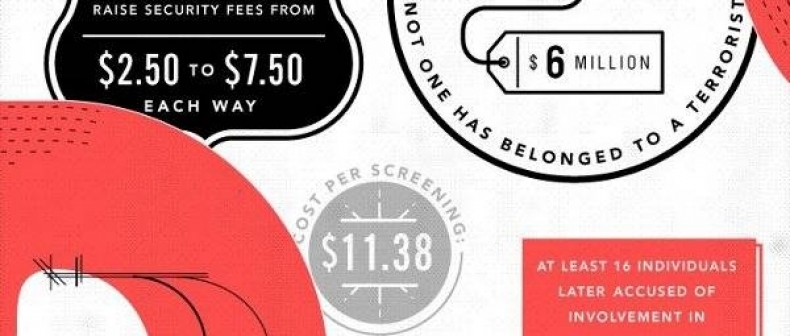
In recent months, the news has been rife with cases of the Transport Security Administration (TSA) using overzealous tactics in their hunt for potential terrorists. Whether it is the pat down of a four year old girl, or the harassment and robbery of octogenarians, the TSA’s tactics have made it rapidly become one of the most derided institutions in American media. But while it is easy for officials to write these instances off as merely isolated cases of TSA agents being too vigilant, there remain egregious systemic problems that cause the TSA to waste money, infringe on civil liberties, and most importantly, fail to make the country any safer.
The TSA has an annual budget of over $8 billion, or roughly half of NASA, and ever since it’s inception in the nervous days of post-9/11, has been frequently accused of squandering those funds. In a Congressional committee report from late last year, members of the House found that the TSA has spent millions of dollars on technology that is simply ineffective in detecting potential threats. In one case, the TSA “wasted $39 million to procure 207 Explosive Trace Detection Portals,” before discovering that they could not “consistently detect explosives in an operational environment,” and had to scrap over half of the costly machines. Moreover, the report found that in the case of detecting possible bombs in America’s largest airports, “some systems are only configured to detect at TSA’s 1998 explosive detection standards.”
In addition to members of Congress, the TSA has also been a target of members of the intelligence community. Steve Moore, a former FBI special agent, head of a counterterrorism force, and pilot of 35 years, has blasted the TSA for what he calls “an extreme naiveté regarding terrorists, their tactics and their operational philosophies.” Even Kip Hawley, a former head of the TSA, has recently called for serious reform, stating in a recent Wall Street Journal piece that it is “a national embarrassment that our airport security system remains so hopelessly bureaucratic and disconnected from the people whom it is meant to protect.” If such is the case then that the TSA is so universally reviled and in need of reform, why do things remain unchanged?
James Fallows of The Atlantic recently conveyed an opinion by author David Moles that may hold the answer. It’s their contention that these economic frivolities are mostly unknown, and as a civil liberties issue, the TSA simply does not weigh as heavily on peoples minds as we may think. Moles states that while the internet community and frequent-flying journalists bemoan the abuses of the TSA, a large portion of the American populace “don’t fly very much, and when they do, they don’t expect to enjoy it.” For them, the looming menace of a terrorist attack should be warded off by whatever means necessary, especially when it isn’t them who have to feel the firm palms of the TSA as a result.
This creates a problem for any politician who would campaign for reining in the TSA, as they would be making an issue out of something many voters don’t necessarily view as a top priority while leaving themselves open to attacks of being soft on terrorism. In that regard, if the TSA is to be reformed then it is important to explicitly prove from not just a civil liberties perspective that there are failures in the TSA, but from an economic and security one as well.
Until the issue of TSA abuses expands from a mere shaming of the trumped up mall cops who confiscate our nail files and pat down our elderly mother-in-law’s crotches, we can expect little change in an institution that has become in the words of the Congressional report “an enormous, inflexible and distracted bureaucracy.” Instead, if change is to occur it is important to note that the TSA is simply not doing its job. Whether on the small scale with scandals, like the LAX agents who are being indicted for letting kilos of cocaine pass the screeners, or as a larger matter of policy. It’s time for the TSA to pass through a screener for a change, have it’s dirty laundry rifled through, and for them to see how it feels when the rubber glove is on the other hand.
_____
Nick Robins-Early is a freelance journalist currently based in Washington, D.C. Follow him @nickrobinsearly.
For more, follow us on Twitter at @torontostandard and subscribe to our newsletter.











